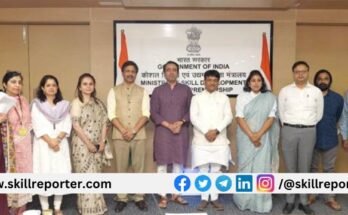G20 cooperation is essential in determining the course the world takes. Headwinds to global economic growth and stability persist. Years of cascading challenges and crises have reversed gains in the 2030 Agenda and its Sustainable Development Goals (SDGs). GHG emissions continue to increase, with climate change, biodiversity loss, pollution, drought, land degradation and desertification threatening lives and livelihoods. Rising commodity prices, including food and energy prices are contributing to cost of living pressures. Global challenges like poverty and inequality, climate change, pandemics and conflicts disproportionately affect women and children, and the most vulnerable.
The leaders of G20 stated “Together we have an opportunity to build a better future. Just energy transitions can improve jobs and livelihoods, and strengthen economic resilience. We affirm that no country should have to choose between fighting poverty and fighting for our planet. We will pursue development models that implement sustainable, inclusive and just transitions globally, while leaving no one behind.”
As Leaders of G20, the premier global forum for international economic cooperation, we resolve to act in concrete ways through partnerships. We commit to:
- Accelerate strong, sustainable, balanced and inclusive growth.
- Accelerate the full and effective implementation of the 2030 Agenda for Sustainable Development.
- Pursue reforms for better, bigger and more effective Multilateral Development Banks (MDBs) to address global challenges to maximize developmental impact.
- Improve access to digital services and digital public infrastructure, and leverage digital transformation opportunities to boost sustainable and inclusive growth.
- Promote sustainable, quality, healthy, safe and gainful employment.
- Close gender gaps and promote the full, equal, effective, and meaningful participation of women in the economy as decision-makers.
- Better integrate the perspectives of developing countries, including LDCs, LLDCs, and SIDS, into future G20 agenda and strengthen the voice of developing countries in global decision-making.
Through these actions today, we are building towards a system that better empowers countries to address global challenges, is human-centric, and brings prosperity and well-being to humanity.”
The G-20 leaders’ declaration, adopted, suggested several structural changes to deliver quality education around the world. The leaders pledged their commitment to inclusive, equitable, high-quality education and skills training for all, including those in vulnerable situations. “We recognize the importance of investment in supporting human capital development,” the declaration said. In the declaration, the leaders underscored the importance of education, skill development, and entrepreneurship, focusing on the following key areas:
Skill Development
Preparing for the Future of Work
We commit to addressing skill gaps, promoting decent work, and ensuring inclusive social protection policies for all. Towards this aim, we:
- Recognize that well-integrated and adequately skilled workers benefit origin and destination countries alike and commit to working towards ensuring well-managed, regular, and skills-based migration pathways.
- Welcome efforts to map global skill gaps and the development of the G20 policy priorities to address skill gaps globally, including through further strengthening our national statistical data, and extending the coverage of the ILO and OECD Skills for Jobs Databases to G20 countries, as appropriate. We commit to effectively addressing global skills for sustainable and inclusive economic development.
- Commit to consider the development of an international reference classification of occupations by skill and qualification requirements to facilitate cross-country comparability and mutual recognition of skills and qualifications.
- Welcome the comprehensive toolkit with adaptable frameworks for designing and introducing digital upskilling and reskilling programmes.
- Aim to achieve sustainably financed universal social protection coverage and consider the portability of social security benefits through bilateral and multilateral agreements.
- Support progress on the implementation of the UN Global Accelerator on Jobs and Social Protection for Just Transitions.
- Acknowledge the economic significance and societal value of the cultural and creative sector to support inclusive growth, sustainable development, and decent work.
- Ensure adequate social protection and decent working conditions for gig and platform workers.
- Will increase our efforts for the elimination of child labor and forced labor along global value chains.
Recommitting to Achieving SDGs
To accelerate progress on SDGs, we commit to taking collective action for effective and timely implementation of the G20 2023 Action Plan to Accelerate Progress on the SDGs, including its High-Level Principles. We will ensure that no one is left behind. We commend the efforts of the Indian Presidency to accelerate the implementation of the 2030 Agenda. To this end, we:
- Recognize the role of digital transformation, AI, data advances, and the need to address digital divides. We endorse the G20 Principles on Harnessing Data for Development (D4D) and welcome the decision to launch the Data for Development Capacity Building Initiative, and other existing initiatives.
Bridging the Gender Digital Divide
We commit to halving the digital gender gap by 2030. To this end, we will:
- Promote regulatory policy frameworks that enable all women and girls to actively participate in the formulation and implementation of national digital strategies, including enhancing digital literacy and skills.
Education
Delivering Quality Education
We are committed to inclusive, equitable, high-quality education and skills training for all, including for those in vulnerable situations. We recognize the importance of investment in supporting human capital development. To this end, we:
- Recognize the importance of foundational learning (literacy, numeracy, and socio-emotional skills) as the primary building block for education and employment.
- Reiterate our commitment to harnessing digital technologies to overcome the digital divide for all learners.
- Extend support to educational institutions and teachers to enable them to keep pace with emerging trends and technological advances including AI.
- Emphasize expanding access to high-quality Technical and Vocational Education and Training (TVET).
- Reaffirm our commitment to promote open, equitable, and secure scientific collaboration and encourage mobility of students, scholars, researchers, and scientists across research and higher education institutions.
- Emphasize the importance of enabling life-long learning focused on skilling, reskilling, and upskilling especially for vulnerable groups.
Building Safety, Security, Resilience, and Trust in the Digital Economy
An enabling, inclusive, open, fair, non-discriminatory, and secure digital economy is increasingly important for all countries and stakeholders while respecting applicable legal frameworks. We will share our approaches and good practices to build a safe, secure, and resilient digital economy. To this extent, we:
- Welcome the G20 Toolkit on Cyber Education and Cyber Awareness of Children and Youth.
Enhancing Economic and Social Empowerment
We encourage women-led development and remain committed to enhancing women’s full, equal, effective, and meaningful participation as decision-makers for addressing global challenges inclusively and in contributing as active participants in all spheres of society, across all sectors and at all levels of the economy, which is not only crucial for achieving gender equality but also for contributing to global GDP growth. To this end, we:
- Ensure equal access to affordable, inclusive, equitable, safe, and quality education from early childhood through higher education to lifelong learning and support the greater enrolment, participation, and leadership of all women and girls, including those with disabilities, in STEM fields and in emerging digital technologies.
- Take steps to promote the full and meaningful participation of women in a transitioning world of work by enabling inclusive access to employment opportunities, with a focus on closing the gender pay gap and ensuring women’s equal access to decent work and quality jobs.
- Promote investment in the availability and accessibility of social protection, and to affordable care infrastructure to address the unequal distribution in paid and unpaid care and domestic work and to promote the continued participation of women in education and employment.
Entrepreneurship
Global Economic Situation
We recognize the critical role of private enterprise in accelerating growth and driving sustainable economic transformations. To this end, we resolve to work with private sector to:
- Create inclusive, sustainable, and resilient global value chains, and support developing countries to move up the value chain.
- Facilitate investments including Foreign Direct Investments (FDIs) towards sustainable business models.
- Devise pipelines of investible projects in developing countries, by leveraging expertise of MDBs to mobilize investments.
- Promote the ease and reduce the cost of doing business.
We recognize that start-ups and MSMEs are natural engines of growth. They are key to socio-economic transformation by driving innovation and creating employment. We welcome the establishment of the Start-up 20 Engagement Group during India’s G20 Presidency and its continuation.
Advancing Financial Inclusion
We welcome the 2023 Update to Leaders on Progress toward the G20 Remittance Target and endorse the Regulatory Toolkit for Enhanced Digital Financial Inclusion of Micro, Small and Medium Enterprises (MSMEs). We endorse the voluntary and nonbinding G20 Policy Recommendations for Advancing Financial Inclusion and Productivity Gains through Digital Public Infrastructure. We take note of the significant role of digital public infrastructure in helping to advance financial inclusion in support of inclusive growth and sustainable development. We also encourage the continuous development and responsible use of technological innovations including innovative payment systems, to achieve financial inclusion of the last mile and progress towards reducing the cost of remittances. We also support continuous efforts to strengthen digital financial literacy and consumer protection. We endorse the G20 2023 Financial Inclusion Action Plan (FIAP), which provides an action oriented and forward-looking roadmap for rapidly accelerating the financial inclusion of individuals and MSMEs, particularly vulnerable and underserved groups in the G20 countries and beyond.
Building Safety, Security, Resilience and Trust in the Digital Economy (for businesses)
An enabling, inclusive, open, fair, non-discriminatory and secure digital economy is increasingly important for all countries and stakeholders while respecting applicable legal frameworks. We will share our approaches and good practices to build a safe, secure and resilient digital economy. To this extent, we:
- Welcome the non-binding G20 High-level Principles to Support Businesses in Building Safety, Security, Resilience, and Trust in the Digital Economy.
Fostering Digital Ecosystems
We resolve to deploy all available digital tools and technologies and spare no effort in fostering safe and resilient digital ecosystems, and ensuring that every citizen on our planet is financially included. To support this, we:
- Commit to promote responsible, sustainable and inclusive use of digital technology by farmers and an ecosystem of Agri-Tech start-ups and MSMEs.
Bridging the Gender Digital Divide
We commit to halve the digital gender gap by 2030. To this end, we will:
- Promote and implement gender-responsive policies to create an enabling, inclusive, and non-discriminatory digital economy for women-led and -owned businesses, including MSMEs.
- Encourage and support initiatives by identifying, funding, and accelerating proven solutions, thereby improving women’s livelihoods and income security.
- Welcome initiatives to support women empowerment in the digital economy.
Unlocking Trade for Growth
We reaffirm that a rules-based, non-discriminatory, fair, open, inclusive, equitable, sustainable and transparent multilateral trading system, with WTO at its core, is indispensable. We will support policies that enable trade and investment to serve as an engine of growth and prosperity for all. Today, we:
- Recognize challenges MSMEs, particularly in developing countries, face with respect to access to information and thus, welcome Jaipur Call for Action for enhancing MSMEs’ access to information to promote the integration of MSMEs into international trade.



